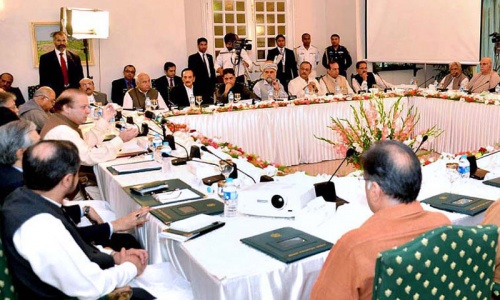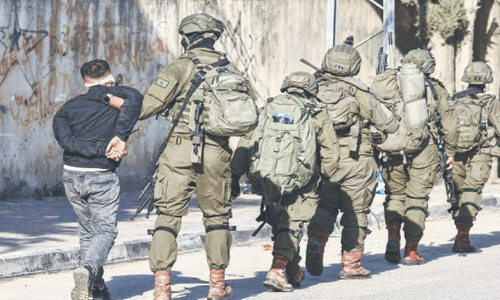WASHINGTON: The dialogue with Taliban militants may start in the next few days, says Prime Minister’s Adviser on Foreign Affairs Sartaj Aziz.
In an interview to Dawn, Mr Aziz also said that while the US might not make a formal announcement for stopping the drone strikes, “we hope that the attacks will taper off”.
“We are developing a comprehensive anti-terrorism policy and holding talks with TTP is part of that strategy,” he said. “We are developing a national consensus on this and that’s why we held the all-party conference in Islamabad recently.”
Briefing Pakistan journalists on Thursday, senior US officials acknowledged that Prime Minister Nawaz Sharif had shared with them his plan to engage the Taliban.
“And we told them we have no objection to it as long as the Taliban agree to recognise the Pakistani constitution and respect the rule of law,” said one US official.
Mr Aziz said the government had already covered a lot of ground and “talks with the Taliban are likely to start in the next few days”.
The adviser said he hoped that Mr Sharif’s four-day visit to Washington this week would lead to a better understanding between the two countries on all major issues, including the drones.
The drone attacks would significantly reduce by the end of this year, he added.
He regretted a Washington Post story published on Thursday, a day after the prime minister completed his US trip, claiming that Pakistan had not only endorsed the drone attacks but also sometimes participated in selecting targets.
“The story and its timing … all very unfortunate,” Mr Aziz said.
“Mr Musharraf may have given a verbal understanding but there’s no written agreement.”
As the prime minister told US leaders during his visit, the attacks violated Pakistan’s sovereignty and were counter-productive, “so we do not recognise any verbal understanding,” he added.
Asked to comment on the controversy involving Pakistani-American scientist Aafia Siddiqui, Mr Aziz said the prime minister had “mentioned (zikr kia tha)” this issue in his meetings with US officials but gave no further details.
On Wednesday, Mr Sharif told a briefing in Washington that he had raised the issue with the Americans but on Thursday US officials said the issue was never discussed as “it’s not open to discussion”.
The adviser confirmed that American officials and lawmakers had asked the prime minister to release Dr Shakil Afridi, start the trial of Mumbai terror suspects and take action against Hafiz Saeed.
“We told them that the trial of Mumbai suspects will start soon. Dr Afridi has been jailed for a crime he committed before the Abbottabad raid and we will take action against Hafiz Saeed if we have concrete legal evidence to do so,” Mr Aziz said.
The issue of Iran-Pakistan gas pipeline was also discussed and “we told them that we believe it does not violate US sanction laws and, therefore, they need to drop their objections”.
Mr Aziz did not respond when asked if the prime minister had also asked the Americans to share civil nuclear technology with Pakistan as it was doing with India.
He acknowledged that there were still some differences between the US and Pakistan, “but positively greatly outnumber the negatives”.
He said that the US-Pakistan strategic dialogue would be held in Washington in March next year.
The United States has assured to invest one billion dollars in the energy sector to help Pakistan overcome the energy crisis, he added.
The Obama administration, he said, was also willing to assist Islamabad in defence and trade sectors.
“We asked them to reduce tariff on our textile goods and they agreed to look into that as well,” he added.
Mr Aziz described US-Pakistan ties as a “roller-coaster relationship with a lot of ups and downs".



































